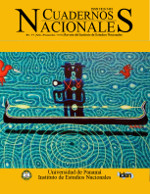

Electoral participation in Panama meets important objectives in participatory democracy. These objectives range from forming or consolidating a political education or career to legitimizing the regime and the elected leaders. There are several factors that intervene and are decisive in the electoral participation among them the demographic and socioeconomic criteria and the analysis of these factors is complex but necessary for the health of democracy. Using official electoral and socio-economic information that occurred between 2004 and 2014, the relationship or not of economic growth on electoral participation and abstention at the country and provincial levels is studied. The results indicate that the Panamanian political party system and the institutional one undertake strategies and actions tending to increase participation and reduce abstention. On the other hand, age and gender are not an impediment to high voter turnout and there is a high relation between economic growth, participation and abstention.